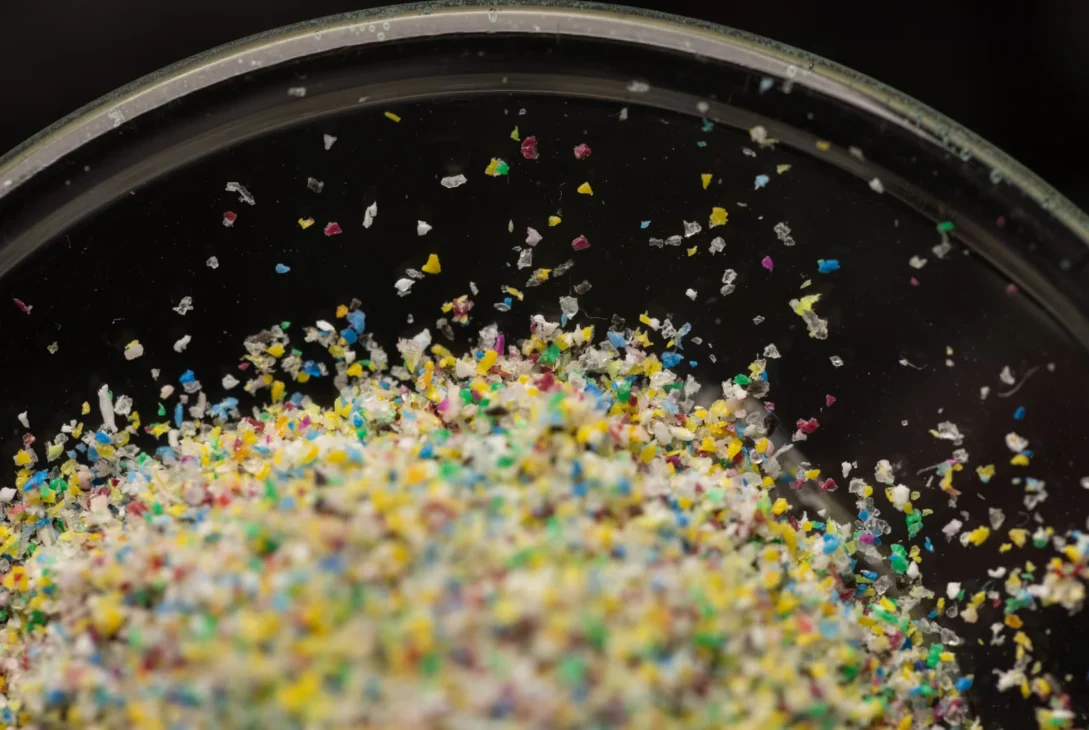Microplastics have been found in human testicles, with researchers saying the discovery might be linked to declining sperm counts in men.
The scientists tested 23 human testes, as well as 47 testes from pet dogs. They found microplastic pollution in every sample.
The human testicles had been preserved and so their sperm count could not be measured. However, the sperm count in the dogs’ testes could be assessed and was lower in samples with higher contamination with PVC. The study demonstrates a correlation but further research is needed to prove microplastics cause sperm counts to fall.
Sperm counts in men have been falling for decades, with chemical pollution such as pesticides implicated by many studies. Microplastics have also recently been discovered in human blood, placentas and breast milk,indicating widespread contamination of people’s bodies. The impact on health is as yet unknown but microplastics have been shown to cause damage to human cells in the laboratory.
Vast amounts of plastic waste are dumped in the environment and microplastics have polluted the entire planet, from the summit of Mount Everest to the deepest oceans. People are known to consume the tiny particles via food and water as well as breathing them in.
The particles could lodge in tissue and cause inflammation, as air pollution particles do, or chemicals in the plastics could cause harm. In March, doctors warned of potentially life-threatening effects after finding a substantially raised risk of stroke, heart attack and earlier death in people whose blood vessels were contaminated with microscopic plastics.
“At the beginning, I doubted whether microplastics could penetrate the reproductive system,” said Prof Xiaozhong Yu, at the University of New Mexico in the US. “When I first received the results for dogs I was surprised. I was even more surprised when I received the results for humans.”
The testes analysed were obtained from postmortems in 2016, with the men ranging in age from 16 to 88 when they died. “The impact on the younger generation might be more concerning” now that there is more plastic than ever in the environment, Yu said.
The study, published in the journal Toxicological Sciences, involved dissolving the tissue samples and then analysing the plastic that remained. The dogs’ testes were obtained from veterinary practices that conducted neutering operations
The human testicles had a plastic concentration almost three times higher than that found in the dog testes: 330 micrograms per gram of tissue compared with 123 micrograms. Polyethylene, used in plastic bags and bottles, was the most common microplastic found, followed by PVC.
“PVC can release a lot of chemicals that interfere with spermatogenesis and it contains chemicals that cause endocrine disruption,” Yu said. The human testes had been routinely collected by the New Mexico Office of the Medical Investigator and were available following a seven-year storage requirement after which the samples are usually discarded.
A smaller study in China in 2023 also found microplastics in six human testes and 30 semen samples. Recent studies in mice have reported that microplastics reduced sperm count and caused abnormalities and hormone disruptions.
Last modified: January 21, 2025


